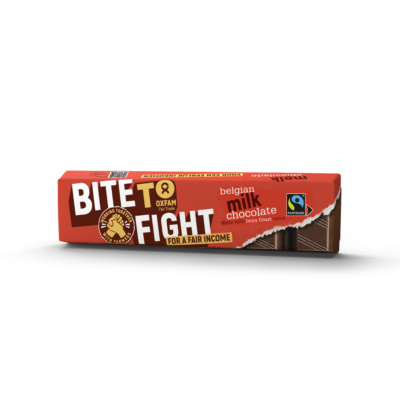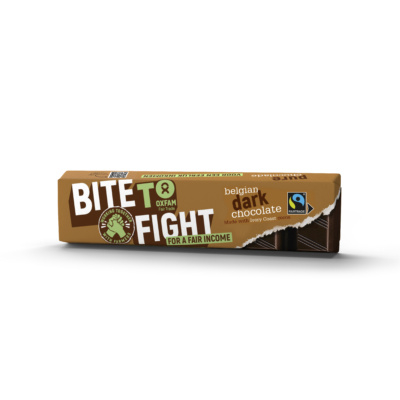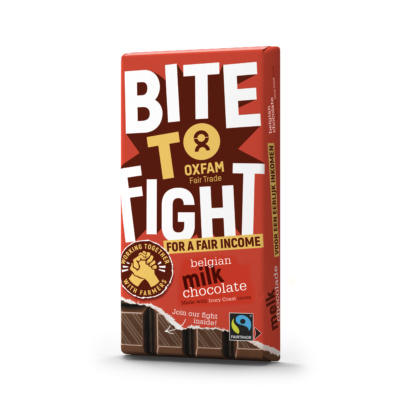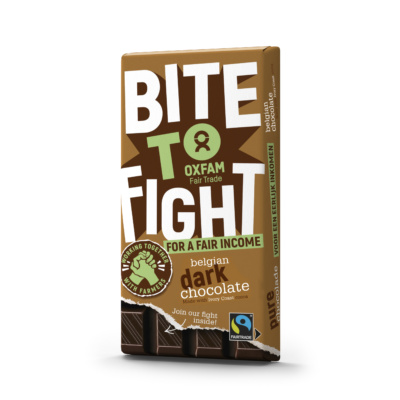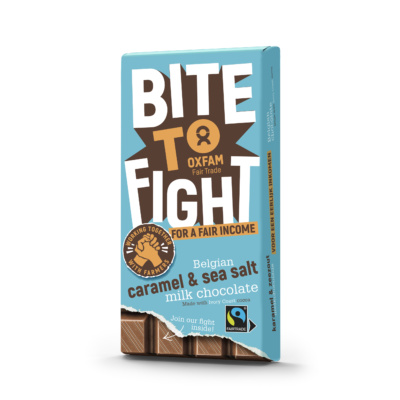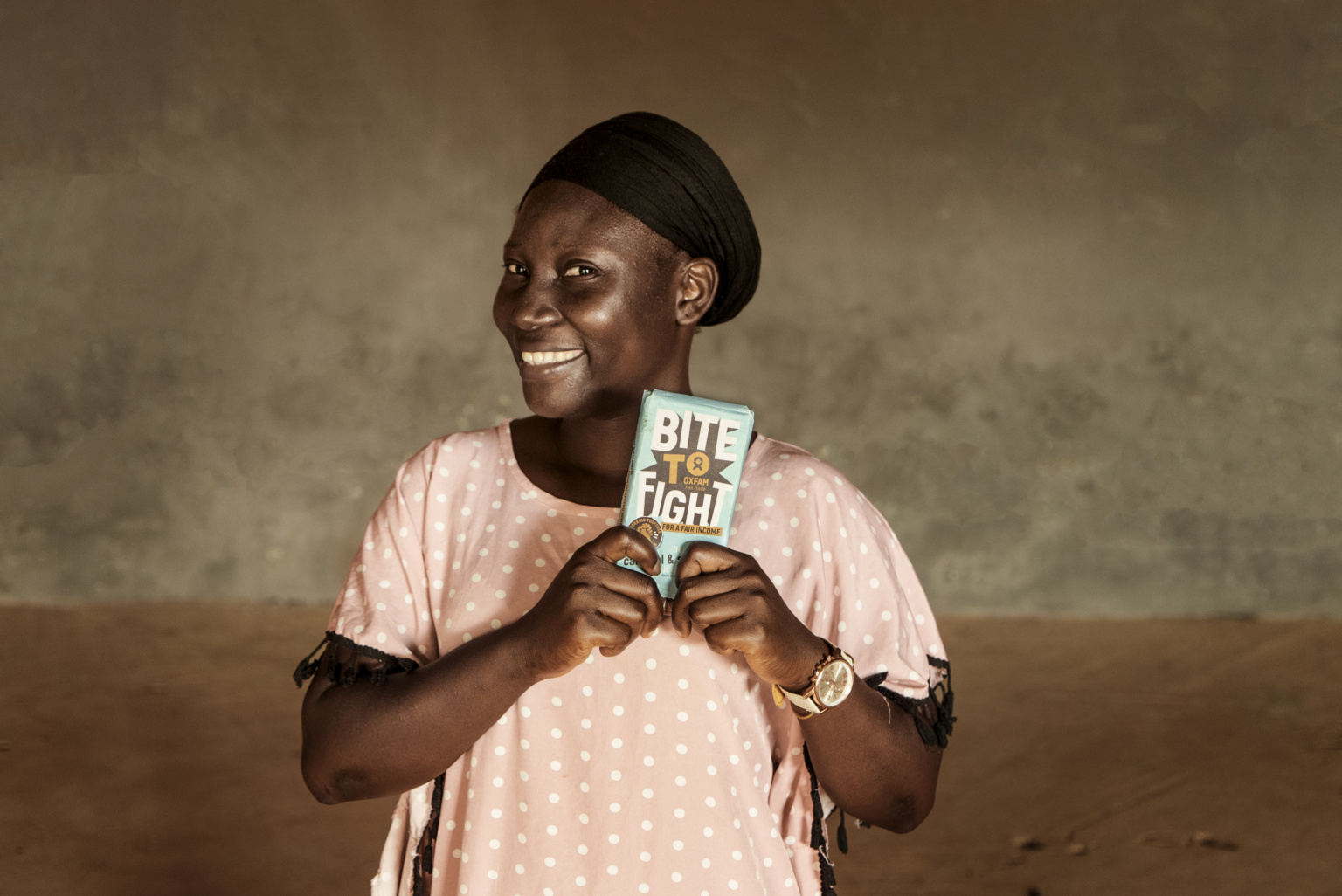
Bite to Fight: join the fight for a fair income
Taste Oxfam’s Bite to Fight fair trade chocolate and you’re guaranteed to embark on a delightful journey that will delight your taste. But choosing our chocolate range also means you are taking part in our fight to ensure cocoa farmers are paid with dignity.
In 2018, Oxfam Fair Trade and the Ivorian cocoa cooperative CPR Canaan launched a new partnership with one main objective in mind: to enable its cocoa farmers to earn a living income. This partnership leads to the creation of Oxfam’s Bite to Fight fair trade chocolate. Read more about this revolutionary project and how far we have come since then.

In Côte d’Ivoire, the world’s largest producer of cocoa beans, cocoa farmers earn only a third of the amount needed to meet their basic needs, such as food, housing, clothing, access to education and healthcare.
On the other side of the chain, a handful of chocolate giants such as Nestlé, Mars, Hershey and Lindt earn a colossal share of the 120 billion dollars that the chocolate industry generates each year.
With its Bite to Fight chocolate, Oxfam Fair Trade wants to shake up the monopoly held by the chocolate giants by putting a fair, sustainable and feminist alternative on the market.
What do we mean by living income?
Fighting for a living income means fighting for a fundamental human right
The most effective way of lifting cocoa farmers out of extreme poverty is to increase the income they earn from their activity. This is exactly what we have been working towards since 2018, when Oxfam Fair Trade launched its Bite to Fight chocolate range.
To close the gap between Ivorian cocoa farmers and the living income, estimated at $12 a day, Oxfam pays the cooperative a premium of $1,068 per tonne of cocoa produced, on top of the Fairtrade minimum price of $2,640 a tonne and a Fairtrade premium of $240 a tonne.
Is this enough? Not yet, according to Julien Tayoro N’guessan, agronomist and head of the Bite to Fight project in Côte d’Ivoire.
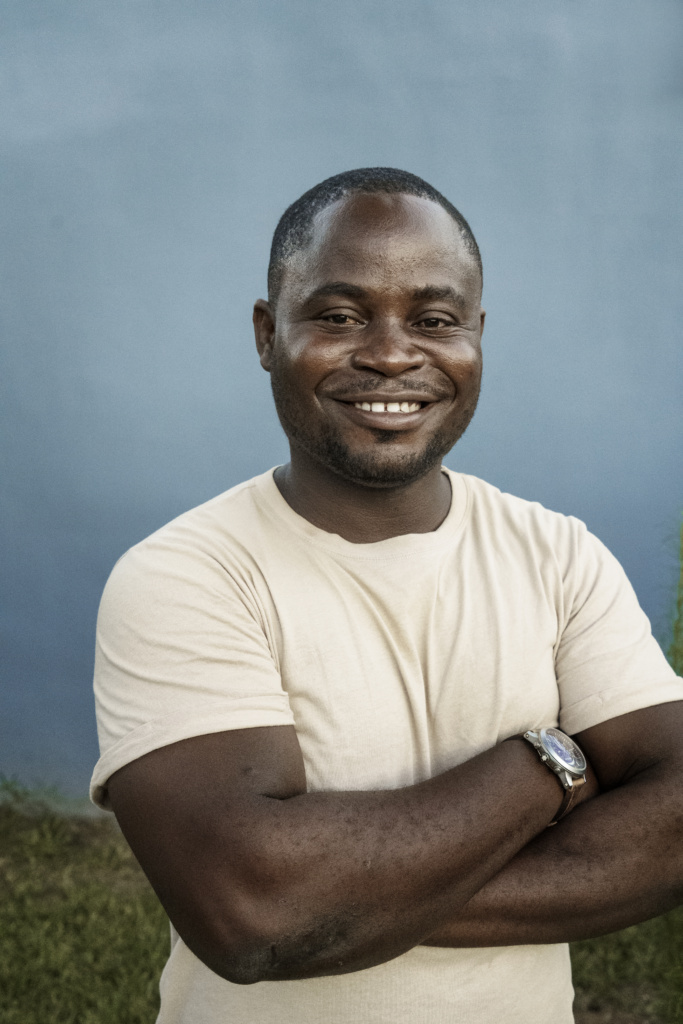
“We have managed to double, sometimes even triple the production of cocoa farmers by improving production techniques.
Our coaches visit the farmers who are members of the cooperative every day. They teach them how to plant cocoa trees at the right distance to protect them from pests and diseases. We also support the production of natural fertilizers, provide tools and, thanks to the premium, the farmers even manage to recruit staff to carry out weeding. We are on the right track, but we haven’t reached our target yet.”
Diversification is another crucial aspect of the Bite to Fight project.Thanks to the premiums, farmers no longer rely exclusively on cocoa, whose production can be unpredictable depending on the climate. Colette Serurlou Kalou, a 62-year-old cocoa farmer who joined the Bite to Fight project in 2021, has already been able to plant her two-hectare field with cashew nuts, manioc, rice, corn, yams and beans. As well as being a source of food, diversification also increases the income of planters like Colette.
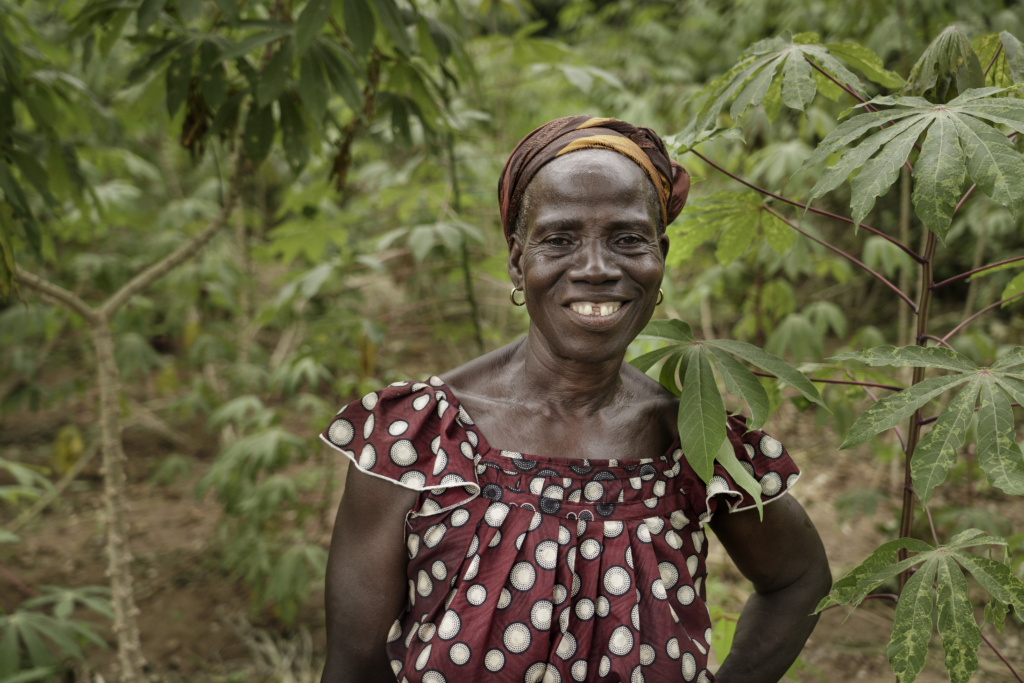
Oxfam’s Bite to Fight chocolate helps farmers adapt to the climate crisis
The cocoa farmers who are members of CPR Canaan are unanimous: everyone notices the effects of climate change on cocoa trees. The dry seasons are longer (sometimes you must wait four months to see a drop of rain) and cocoa plants are not very resistant to drought and excessive sunshine. Faced with this challenge, which threatens the very existence of cocoa farming, Oxfam Fair Trade has supported the development of a tree nursery that now produces 100,000 shade trees a year. These protect the cocoa trees from longer and intense sun exposure and reduce their mortality rate.
But the climate crisis is also exacerbated by deforestation, an endemic plague in Côte d’Ivoire, which has lost much of its primary forest to cocoa farming. To combat this scourge, Oxfam is offering planters a premium for each tree that remains intact.
Watch this video to find out how we are helping cocoa farmers to adapt to the effects of climate change.
Towards greater gender justice
Women manage many cocoa plantations in Côte d’Ivoire and West Africa in general. Nearly a quarter of cocoa plantations are run by women. They are often paid less than men and have less access to credit to develop their business.
The Bite to Fight project therefore set out to provide a gender-specific response to this structural inequality. We supported the start-up of several village savings and loan associations (VSLAs), set up by and for women in the Daloa region. By paying weekly contributions, women cocoa farmers build up credits funds and saving groups, from which they can then borrow larger sums to develop their projects.
It is a great alternative to commercial banks, which charge high interest rates. Thanks to these savings and credit groups, these women can invest in their farm, buy new fields or open a restaurant. And it’s been a huge success. In just two years, we have supported the creation of 13 groups, bringing together 200 women.
Sink your teeth into the fight for fair chocolate
Bite to Fight chocolate stands for:
- a commitment to guide farmers in earning a living income
- consistent education for children (instead of working on the plantation to supplement their parents’ income)
- sustainable agriculture, without deforestation
- a program that promotes women’s emancipation
- a transparent organization that sets the (chocolate) bar as high as possible
- high-quality chocolate, with progressive ambitions as an example for the rest of the sector

